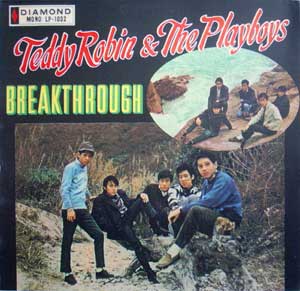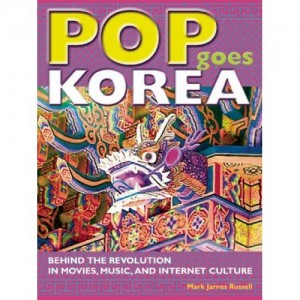It looks like I am going to be horribly slow in finishing my review of Doomsday Book. Sorry about that. But at the moment I am putting much of my free time into plowing through a rather large reading list for a seminar I will be attending in a couple of weeks (in the Italian countryside … nice!). The event is being organized by the Legatum Institute, a public policy institute that is perhaps best-known for its Prosperity Index. It also co-sponsored the Democracy Lab with Foreign Policy magazine.
The theme of this event is “Why Do Civilizations Flourish and Fail?”, and I’m sure we’ll have no problem coming up with a definitive answer by the end of the week. -..-
Anyhow, the reading list is a pretty good overview of the latest books on the subject, as well as some pretty tangentially related other books on naval history, neural theories, and more. I thought I would talk a bit about the books, if only to help me work out my own thoughts.
Why Nations Fail: The Origins of Power, Prosperity and Poverty 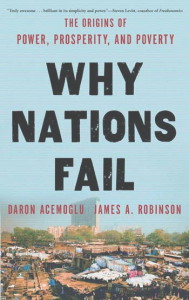
-Daron Acemoglu, James A. Robinson
This book has gotten a lot of press over the last few months, and I suppose it is easy to understand — they have a very clear thesis (“inclusive” political institutions make societies grow, “extractive” ones make them die). I’m kind of surprised that Acemoglu and Robinson are university professors because at many times the book reads a lot like something by a journalist, with random anecdotes and man-on-the-street quotes that are supposed to illustrate a point, but are usually too idiosyncratic to be useful.
While the contrast between inclusive and extractive political institutions is a very interesting and useful point, Acemoglu and Robinson definitely over-rely on it, constantly reducing complex issues and historical changes to a simple inclusive/extractive binary. It’s kind of like the old saying, “When all you have is a hammer, everything begins to look like a nail.” And the authors do like to bash away. Jared Diamond has written an excellent analysis of their book over at the New York Review of Books, especially challenging their challenges to his own theories from Guns, Germs, and Steel. He brings far more insight into the longue durée and prehistory arguments than I can, so please check out his review.
But they do have one chapter that revolves around the difference between North and South Korea, which is something I think I know a bit more about. The authors use the Koreas as an example of how different political institutions can radically affect development.But clearly they don’t know a whole lot about Korea, aside from the usual talking points one gets from newspaper stories and introductory books. For example, they talk about South Korea’s property rights, even though, while much stronger than the North, Park Chung Hee did not have a problem walking all over property rights of individuals or corporations when it suited his interests. Nor do they have any concept of how both Koreas’ long history of state administration affects legitimacy or government efficacy. They also talk as if North Korea immediately started to fall apart because of its extractive institutions, overlooking how long North Korea seemed to be doing okay after the division of the Peninsula. North Korea was probably ahead of the South until the mid-late 1970s, and it wasn’t too terribly far behind in the 1980s — granted, that was mostly because it was being propped up by the Soviets, but, still, it was far from the mess that it is today.
Besides, anything involving North Korea really is a bit of a gimme. It’s just too much of a basketcase to be very useful for much practical analysis. You could point to any difference between the countries (professional management, say) and credit/blame it for the differences.
Another huge problem with the book is, even though it a huge emphasis into analyzing why the modern state grew out of England in the 18th century, it barely considers the Scientific Revolution. Lots of talk about the English Revolution and the Industrial Revolution, but science gets a pass. That sort of oversight drives me nuts. Plenty of countries have political revolutions (sometimes widening political power, sometimes centralizing) and several countries have had economic progress, there’s only been one Scientific Revolution. One of the most important results of modern science is the mechanistic, atomistic mindset it created, the ability to think of the world as spiritless, material matter — surely a key stage in creating modern political and economic institutions.
Grand Pursuit: The Story of Economic Genius 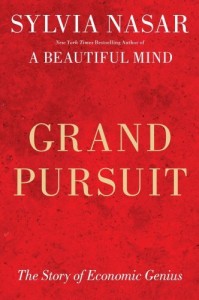
-Sylvia Nasar
Nasar is most famously for her book on mathematician John Nash that led to the movie A Beautiful Mind. Grand Pursuit is mostly a series of small biographies of some of the most important economists of the last two centuries, including Charles Dickens, Marx and Engels, Alfred Marshall, Joseph Schumpeter, Keynes, Hayek, and Samuelson. Not a lot of bit theorizing going on here (and when Nasar does venture into big ideas, it can come across as a bit clunky and forced), but the biographies are compelling and well written.
In a way, it is a bit like my own book, focusing on individuals to look at larger trends and ideas, but of course it is much stronger and broader than Pop Goes Korea. Nasar also fills her stories with the kind of personal details that, while engaging, really make me nervous as a journalist. Things like: “So-and-so looked out the window, more nervous than he had ever felt” (not an exact example, but it gives you a sense) — Do we really know so-and-so was looking out the window then? Do we really know how nervous he was? Maybe Nasar was able to dig up sources that really were that detailed, but for people that long deceased, the style makes me nervous.
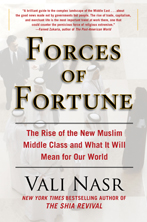
Forces of Fortune: The Rise of the New Muslim Middle Class and What It Will Mean for Our World
-Vali Nasr
This has probably been my favorite book so far — well written and full of new information and smart insights. It helps that Nasr is from Iran and has a wide network of family, friends, and personal memories to draw from. He’s not just some academic studying a region, but he has a personal stake in the issues and an authentic, street-level view of what is going on.
Not surprisingly, he concentrates heavily on Iran (maybe about half?), and then Pakistan and Turkey get some decent coverage. The rest of the Arab world is discussed, but less in-depth.
If you have watched any Iranian cinema, read Persepolis (the comic book) or other books, or had any dealings with Iranians, you should already know that much of the country is very different than how it is typically portrayed in the media or thought of by most people. It is far more modern and capitalist than most people in the West realize.
At its heart Nasr’s book is the anti-Why Nations Fail. Whereas Nations‘ authors believe that political institutions come first and all else follows, Nasr believes that economics come first, and political institutions tend to react to the material status of a country. He certainly does not consider Islam to be inherently conservative or medieval. Instead, he thinks that people there are not that much different than God-fearing Americans, only their history has forced them into very different circumstances. He mostly blames a century or so of colonialism and then the oppressive Kemalist governments that ruled much of the region (secular, militarist, and authoritarian) for destroying the middle class, ruining basic governing structures, and giving rise to Islamism.
The Ascent of Money 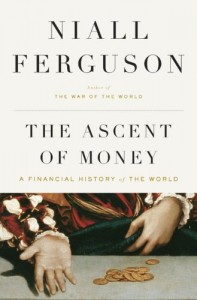
-Niall Ferguson
I’m not finished it yet, but, on the whole, Fergunson’s book is a lot stronger than I thought it would be — much less political, like his often blustery newspaper editorials, and more solid, fact-based history. Of course Ferguson is arguing a particular point of economic view, but it does not overwhelm the subject matter.
Unsurprisingly, Ferguson’s chapter on the Rothchilds is one of the strongest (as his history of the family is considered one of the best out there). But rather than concentrate too much on personalities, Ferguson looks more at the institutions and larger aspects of money: money as credit, money as bonds, insurance, etc. His look at the financial background of World War I — how the markets did not see war coming and, only at last moments before the scope of the coming conflict was clear, completely freaked out, with all the major stock exchanges in the world shutting down within a few days — is particularly fascinating.
But when we move from history and closer to contemporary issues (and therefore contemporary politics), Ferguson’s book weakens. He is entirely too credulous about the rise of China, for example. And blaming (crediting?) China for the hedge fund and derivative explosion of the last 15 years is just bizarre — kind of like blaming TNT for an explosion, rather than the person who set and detonated the bomb. It reminds of me that Simpsons episode, “Kamp Krusty,” when Bart asks Krusty how he could lend his name to such a lousy product. Krusty answers:
“They drove a dump truck full of money up to my house! I’m not made of stone!”
You can see the episode with that quote here (around 3:50).
Ferguson’s big conclusion, about how banking and finance need more evolutionary pressure and creative destruction is a bit dubious, too. After all, even Alan Greenspan had admitted that the banks’ instincts for self-preservation are not nearly as good as he once believed.
Debt: The First 5,000 Years 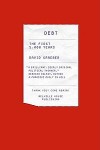
-David Graeber
Not really on the reading list, but it seemed like a good addition. Sadly, this is not the book I was hoping for, which would have been a history of debt. Instead, it is more of a grand re-theorizing of all of modern economics from an anthropological point of view — and a very political, academic-left kind of post-modern anthropology at that (i.e.: not the good kind of anthro). Apparently Graeber is some kind of famous anarchist activist, so I guess it was my fault for thinking this book might be something different than what it is.
That said, it is definitely a book with merits. Sure, it may drive you crazy two or three times a page, but Graeber also will intrigue and stimulate three or four times on that same page, so generally you come out ahead. However, unless you are inclined to believe that the last 5,000 years are all an unnecessary social construct built upon cruelty and domination, and we could transform our world into a truly free, open place by getting rid of money, then this book is probably not for you.
Lords of the Sea: The Epic Story of the Athenian Navy
and the Birth of Democracy
-John Hale
Hale’s book is another total winner. Fun and endlessly insightful. He ties the cultural/political flowering of Athens into its rise as a naval power in the eastern Mediterranean. In the face of conflicts with the Spartans and the Persians, Themistocles convinces Athens to build a powerful navy of trireme vessels — oar-powered ships that could ram their way through other boats. But oars require people to power them, and the sheer number of ships in the Athenian fleet meant that pretty much all of Athens’ citizens had to spend some time at sea; and because everyone is equal when rowing and everyone rowed, Hale argues that the triremes played an important part in developing the city’s democratic, participatory character.
The World America Made 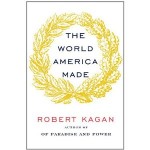
-Robert Kagan
I basically agree with Ian Buruma on this book — the US global military presence is general does more harm than good. Not because the United States is evil (generally its foreign policy seems well-intentioned), but because the US’s protection encourages many countries not to develop their own defense forces adequately. And when countries do not take responsibility for their own defense, that turns them into irresponsible children.
I did, however, like the reminder that the United States never really was that dominant internationally, even after World War II, and enemies and allies alike constantly jostled for power and influence around the world.
* * *
Iain McGilchrist’s The Master and His Emissary is also on the reading list (and I downloaded it to my Kindle), but at this point I am more familiar with McGilchrist’s TED talk than his book. I hope to fix that situation soon, though. As a big Julian Jaynes nerd, it does look like McGilchrist’s work is in a similar vein.
There have also been some classics on the reading list, so it has been fun revisiting Macchiavelli’s The Prince, Edward Gibbon’s Decline and Fall of the Roman Empire, and Farid ud-Din Attar’s The Conference of the Birds (not on the reading list, but Nasr’s book on Iran put me into a Persian sort of mood)
